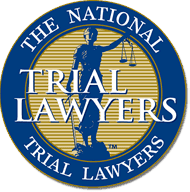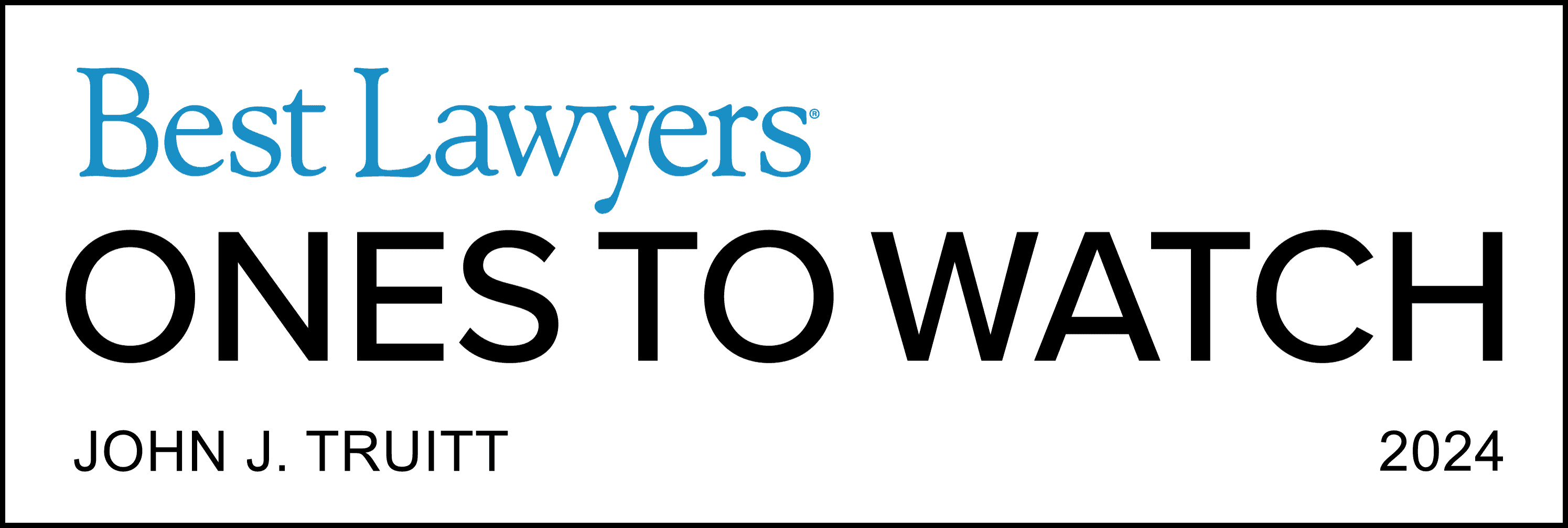
Real Estate Attorney Naples
Trust & Real Estate Litigation in Florida
In many cases, the most valuable piece of property any of us will ever own is real estate. The reason real estate is so valuable is that there’s only so much of it to go around, and every day the population living on it and using it gets a little larger. As you might expect, with our population at an all-time high, real estate values have skyrocketed in recent years. Unfortunately, as real estate values have risen, real estate litigation disputes have grown more common.
Common Types of Real Estate Litigation Disputes
The more valuable an asset is, the more likely it will be the subject of a legal dispute. That statement describes the legal woes that can come with owning real estate to a T. The variety of issues that real estate owners can face are seemingly endless.
However, there are a few real estate disputes that are more common than others, such as the following:
- Breach of Contract – This happens if either party involved in a real estate contract (buyer or seller) fails to properly follow the terms of the contract.
These disputes not only involve financial implications but can also lead to loss of opportunity or additional legal fees. It is crucial for both parties to have a thorough understanding of the contract terms and consult a real estate attorney if discrepancies arise to ensure their rights and interests are adequately protected.
- Easement Disputes – An easement allows someone a limited right to enter the property of someone else to use the property for a specific purpose. For instance, if others use a road or path that crosses through a person’s property to reach a beach, public landmark, or main road. If either party involved in an easement breaches the agreement, it can lead to real estate litigation.
Resolving easement disputes often requires a detailed analysis of property titles and historical usage, sometimes involving testimonies from prior landowners or experts in land surveying. A real estate lawyer can assist in negotiating terms or reinforcing your rights if an easement is being inappropriately used.
- Breach of Duty – This is a form of negligence that involves the contract between a real estate agent and their client. Real estate agents have a duty to work in their clients’ best interests. If a real estate agent’s negligence leads to their client losing money, it may be a breach of duty. An example of this would be if a real estate agent knew information about a property that would cause the client not to want to buy the property. If the real estate agent did not tell the client the information and the client bought the property, that would be a breach of duty.
Clients rely heavily on the professionalism and transparency of their real estate agents. Identifying breaches early can help mitigate losses and allow for restitution through legal avenues. Ignorance of hidden defects or potential zoning issues are common triggers that underscore the need for legal vigilance.
- Failure to Disclose – Sellers must disclose information about the property they are selling, like defects, to potential buyers. If a seller does not disclose this information and a buyer discovers an undisclosed defect after purchasing the property, the buyer may be able to file a lawsuit against the seller for failure to disclose.
The obligation to disclose covers a range of defects, from foundational issues to local nuisance factors. Consulting with a real estate attorney before purchasing can help buyers request the necessary inspections and reports to protect against such hidden dangers.
- Boundary & Property Line Disputes – This sort of legal issue arises when a property line/boundary is disputed. In some cases, a property line was never registered. In other cases, the boundary being used by the two properties does not match the registered property line.
Disputes can become contentious, especially when they affect the overall value or utility of a property. Resolution often involves surveying, negotiation, or legal adjudication to ensure an equitable outcome.
- Eminent Domain – This involves the government taking private property from the owner for public use. The government compensates the property owner for the real estate. However, in many cases, the real estate owner would rather keep their property than let the government have it, which can lead to a legal dispute.
Legal guidance can help landowners negotiate better compensation or challenge the necessity of the eminent domain action, especially if the proposed use of the land challenges its benefits or community necessity.
- Partition Actions – A partition action occurs when real estate is divided up between joint property owners because they disagree about how the property should be used.
These disputes require a thorough understanding of property rights and potential buy-out solutions for joint owners. Real estate attorneys can facilitate agreements by mediating or litigating to achieve fair distribution based on contributions and intended usage.
- Landlord/Tenant Disputes – This involves commercial real estate. If a property owner/landlord and a tenant disagree about a matter related to the property that the tenant rents from the landlord, then the matter may eventually have to be resolved through real estate litigation.
The complexity of these disputes often necessitates navigating lease agreements, rent obligations, property maintenance, and tenant rights. A lawyer can advocate for fair terms, address grievances or breaches, and promote amicable resolutions.
- Inverse Condemnation – This is like eminent domain. However, unlike eminent domain, inverse condemnation involves the government appropriating private property but failing to compensate the owner, even though that’s required by law. An example of this could be if a city widened a road and, in the process, the road expands into a business’ parking lot. However, despite replacing part of the business’ parking lot with the newly widened road, the city refuses to/doesn’t compensate the business for the loss.
Pursuing such cases involves proving the ownership, analyzing the damages, and potentially litigating for just compensation, making legal representation essential to ensure rightful payment.
- Sale/Purchase Agreement Disputes – This can involve several issues related to the contract between a real estate buyer and seller. Examples include disputes regarding closing costs, escrow deposits, easements, or a failure to disclose defects.
Clarity and fairness in these agreements can avert litigation, but unresolved issues may require mediation or judicial intervention. A skilled real estate attorney can help in clarifying contract terms or defending against any unjust claims.
Can a Trust Dispute Involve a Real Estate Transaction?
In addition to the legal woes that accompany real estate ownership, the circumstances of a real estate transaction can lead to involvement in other types of legal disputes. One surprising problem that can arise from a real estate transaction is a trust dispute. Real estate-related trust disputes can occur if real estate is moved into a trust.
Trust disputes in real estate transactions may arise from unclear trust documentation or disagreement among beneficiaries on how the real estate in a trust should be managed or distributed. Engaging with a real estate attorney proficient in trust laws allows all involved parties to navigate these disputes more efficiently, preserving the value and intent of the trust.
Moving real estate into a trust requires specific steps, including:
- Choosing the type of trust (generally, either revocable or irrevocable)
- Designing the real estate trust to avoid probate
- Preparing a new deed that transfers the property into your name as the trustee of your trust
- Signing necessary documents (such as the deed and tax forms)
- Receiving approval from your homeowners’ association (HOA). This only applies if the real estate falls under the HOA’s jurisdiction.
- Receiving approval from your lender. This is usually only the case if the real estate is subject to a mortgage and is not your primary or secondary residence.
- Having the new deed and other documents added to the land records of the county where the real estate is located.
The above is a simplified version of the steps necessary to move real estate into a trust. Any misstep along the way or legal problems with other parties involved in the transaction (such as other real estate owners in the area, others with claims on the property, or even a disgruntled HOA) could result in a trust and/or real estate dispute.
To mitigate potential issues, careful planning and legal advice are paramount. Engaging with a knowledgeable real estate attorney can streamline the process, offering insights on drafting precise trust documents and understanding local legal nuances impacting trust conveyance. This proactive approach helps prevent future legal challenges or disputes over property ownership.
Understanding Naples Real Estate Market Trends
The real estate market in Naples is widely recognized for its dynamic and competitive nature, influenced by the area's attractive lifestyle, economic growth, and favorable climate. In recent years, Naples has seen a significant increase in demand for residential and commercial properties. The city’s real estate market is characterized by its luxury properties, waterfront homes, and upscale condominiums, attracting both national and international buyers.
This surge in demand often leads to competitive bidding and increased property values, contributing to more frequent legal disputes over property transactions, land use, and development rights. Local real estate attorneys play an integral role in navigating these issues, assisting with contract negotiations, zoning disputes, and ensuring compliance with Florida’s complex property laws. Being informed about current market trends is crucial for both buyers and sellers, as it affects property valuation, investment potential, and risk of litigation.
Moreover, the burgeoning market has prompted strategic urban development initiatives, focusing on sustainable growth while preserving the area’s natural beauty and high-quality living standards. As the city expands, issues like zoning laws, land preservation, and community planning become more prominent, requiring careful legal consideration.
Prospective property owners and real estate investors benefit from engaging with knowledgeable attorneys who understand these local dynamics and can offer guidance on mitigating risks associated with purchasing or developing property in such a vibrant market. By staying informed on these trends, individuals can make more strategic decisions in their real estate endeavors, safeguarding their investments against unforeseen legal challenges.
To learn more about our law firm and practice areas, check out our video center.
Schedule a Free, Confidential Consultation With Our Real Estate Litigation Attorneys
Whether you’re involved in a real estate dispute or another type of legal issue, such as a trust dispute, that involves a real estate transaction, our experienced real estate litigation attorneys are here to help. At Vernon Litigation Group, we have been successfully litigating, arbitrating, and negotiating legal disputes involving real estate, trusts, business litigation, data breaches, and much more for years. We understand what it takes to see these types of cases through to a satisfactory conclusion for clients and have the experience, knowledge, and skills to get it done.
Our team's dedication involves not only understanding the legal frameworks but also employing strategic negotiation skills to achieve favorable outcomes. We remain committed to maintaining our high standards by being at the forefront of legal advancements and regulatory considerations.
For more information about trust and real estate litigation, or to discuss your situation with an experienced member of our legal team, call us at (239) 319-4434 or contact us online. We offer free, confidential consultations.
FAQ Section
What Are the Common Legal Challenges in Buying Property in Naples?
Buying property in Naples, while attractive, comes with its set of legal challenges. Common issues include navigating the local zoning laws, which can impact the intended use of the property. Additionally, prospective buyers often face complexities surrounding home inspections and disclosures, which can reveal previously unknown defects or legal encumbrances.
It’s also crucial to verify the accuracy of property boundaries and access rights, as disputes can arise over easements or shared access paths. Engaging with a competent real estate attorney is advisable to thoroughly review purchase agreements, negotiate terms, and ensure all legal requirements are met, thus protecting buyers from potential litigation or financial losses. Real estate lawyer advice can be invaluable in navigating these complexities.
How Do Florida Property Laws Impact Real Estate Transactions?
Florida property laws significantly impact real estate transactions, influencing everything from contract terms to closing processes. These laws govern residential and commercial real estate and encompass regulations on title transfers, escrow accounts, and the disclosure of specific property conditions.
Understanding these laws is vital for ensuring transactions are legally binding and protecting against liabilities such as liens or zoning violations. Real estate attorneys play a pivotal role by interpreting these laws within the context of each transaction, offering strategic advice to avoid common pitfalls and ensure compliance with all local and state requirements, thereby securing smoother transactions and greater client satisfaction.
Why Is Legal Advice Essential in Naples Real Estate Investments?
Legal advice is indispensable for those involved in Naples real estate investments due to the complexity and high stakes involved. An experienced attorney helps navigate the intricacies of property contracts, financing, and negotiations. Understanding the local real estate market’s idiosyncrasies—including regulatory requirements, community development plans, and market conditions—can be daunting without professional guidance.
Legal counsel ensures that all contractual obligations are clear, the due diligence process is comprehensive, and potential legal issues are identified and addressed early. This proactive approach helps protect substantial financial investments and minimizes the risk of litigation, ensuring that clients can pursue opportunities with confidence and security.
What Role Does Mediation Play in Real Estate Disputes?
Mediation serves as a vital tool in resolving real estate disputes, offering an effective alternative to litigation. It involves a neutral third party, the mediator, who assists the disputing parties in reaching a mutually acceptable agreement. This process is particularly beneficial in real estate because it tends to be less adversarial, more cost-effective, and quicker than traditional court proceedings.
Mediation is often used to resolve issues such as breach of contract, boundary disputes, or tenant-landlord disagreements. Real estate attorneys can assist their clients in mediation by preparing arguments, clarifying legal positions, and advising on suitable settlement options, ultimately aiming for resolutions that satisfy all parties involved and preserve business relationships.
How Can Property Rights Disputes Be Resolved in Naples?
In Naples, resolving property rights disputes often involves a combination of negotiation, mediation, and, if necessary, litigation. These disputes can arise from overlapping land claims, easement disagreements, or unclear title documents. Effective resolution begins with a thorough legal evaluation of property deeds, historical land surveys, and relevant local property laws.
Real estate attorneys are crucial in conducting these investigations and advocating for their clients’ positions during negotiations or court processes. They can also facilitate communication between parties to reach amicable settlements and avoid protracted legal battles. If litigation becomes unavoidable, having a skilled attorney ensures that all possible legal avenues are explored, prepared, and presented robustly in court to secure the rights and interests of the property owner.

Our Client Testimonials
-
Highly recommend! I had a great experience with Vernon Litigation Group and was very pleased with their work and the outcome of my case.
Ashley T. -
"Superior service, very upfront communication, concern for our well-being seemed to be a top priority for this firm. Would highly recommend them for any legal needs."Rob K.
-
"The advice they gave and the actions they took literally made the difference between our family having a home or being left temporarily homeless. We're eternally grateful for their swift actions that ended in our favor and a home for our two young children"Ginger K.








.2303131409550.png)


